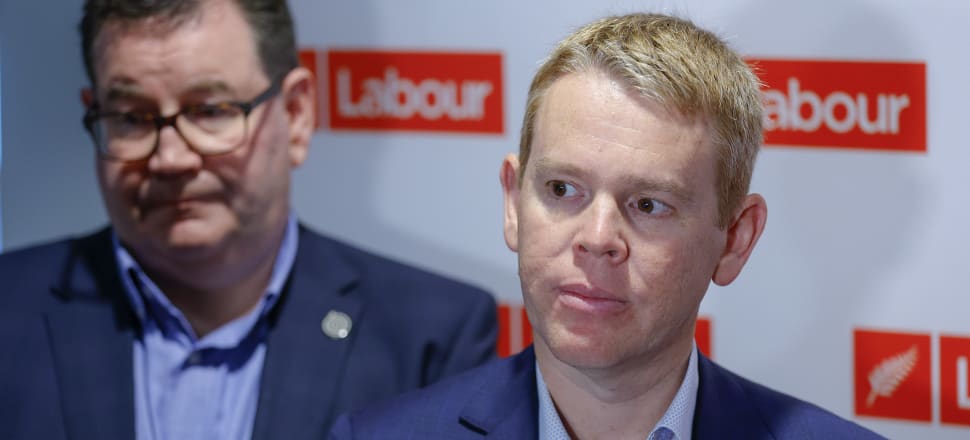
Labour isn’t planning any big political promises during this year’s campaign in the hope voters see that as the fiscally smart choice, writes political editor Jo Moir
Comment: Finance Minister Grant Robertson has already made it clear this is not the time for spending up large.
In an interview with Q+A on Sunday, he put it bluntly, “It is not going to be possible to make big promises”.
When the books are opened in September as part of the pre-election fiscal update it could show the need for even more tightening – something Robertson has already asked public service bosses to do.
READ MORE: * PM stuck in limbo-land governing * Chris Hipkins' gift to Grant Robertson
Households and businesses are still doing it tough and international factors aren’t helping.
The International Monetary Fund (IMF) has put out warnings not to celebrate the gradual economic recovery from the Covid-19 pandemic because there are still so many challenges on the horizon.
China’s household debt has surged and is approaching the IMF’s warning line, there’s depleted household savings in the United States, and Russia’s invasion of Ukraine continues to put pressure on global financial health.
For all those reasons, Robertson says prioritising funding public services, like health and education, over anything else New Zealanders might be offered by other political parties, such as tax cuts, is the smart thing to do.
Robertson is auditioning for another three years as finance minister and is relying on voters feeling the pinch at home to be unimpressed by politicians promising to spend large sums of money on things the country can’t afford right now.
It goes to the heart of both Labour’s and Robertson’s economic credibility and will mean steering clear of any glitzy campaign announcements to show it's in tune with households and businesses doing it tough.
What it means is Labour’s big campaign promises will be replaced with a series of medium-sized announcements.
Two of those set to be announced sooner rather than later are Labour’s tax plans and its improved paid parental leave policy. It’s been getting hammered on both in recent weeks.
Hipkins all but announced the latter on Monday, saying “I’ll always be aiming, as long as I’m in politics, to be increasing the amount of time parents can spend at home with their kids”.
Newsroom understands both the length of leave and the flexibility for parents to choose whether to take the leave together or separately, or a combo of both, will be part of the policy when it’s announced.
“At the moment the system wouldn’t have the capacity to deal with it, and there would likely be significant investment required just in order to build capacity to meet the need for additional dental care." - Chris Hipkins
On tax, Chris Hipkins has been signalling an announcement for a fortnight, so a good bet would be for it to land this weekend.
National’s finance spokesperson Nicola Willis appeared to release part of Labour’s tax policy early, telling media it planned to announce removing GST from fruit and vegetables.
Even with the logistical exercise of determining what counts as produce, the policy is popular, and National didn’t gain a whole heap from letting the cat out of the bag other than allowing voters to talk about it for longer than Labour intended.
And if it’s not part of Labour’s tax policy then Robertson and Hipkins have done a woeful job of denying it.
It’s been about six weeks since it was first foreshadowed tax policy was coming, so whatever work is going on in the background it’s clearly not a straight-forward process finalising the details.
As for any extension to free dental care, Labour’s health policy is unlikely to include anything more than bumping up the pool of money people can access hardship grants from.
Hipkins told Newsroom on Monday it’s not only about how expensive universal free dental care would be, but having the workforce to deliver it, which is something New Zealand doesn’t currently have.
“At the moment the system wouldn’t have the capacity to deal with it, and there would likely be significant investment required just in order to build capacity to meet the need for additional dental care,” Hipkins said.
Health Minister Ayesha Verrall killed off free dental care, saying improvements had been made in the workforce but “certainly not at the level required to achieve universal dental, no”.
She accepted there was still a lot of “unmet need” out there, but it came down to setting priorities.
The expensive price tag that comes with free dental care doesn’t stack up in this economy.







